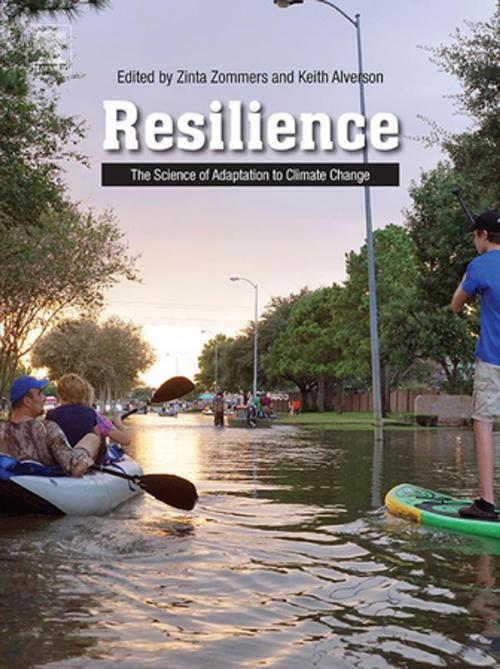Resilience
The Science of Adaptation to Climate Change
Nonfiction, Science & Nature, Science, Other Sciences, Meteorology, Biological Sciences, Environmental Science| Author: | ISBN: | 9780128118924 | |
| Publisher: | Elsevier Science | Publication: | May 9, 2018 |
| Imprint: | Elsevier | Language: | English |
| Author: | |
| ISBN: | 9780128118924 |
| Publisher: | Elsevier Science |
| Publication: | May 9, 2018 |
| Imprint: | Elsevier |
| Language: | English |
In Resilience: The Science of Adaptation to Climate Change leading experts analyze and question ongoing adaptation interventions. Contributions span different disciplinary perspectives, from law to engineering, and cover different regions from Africa to the Pacific. Chapters assess the need for adaptation, highlighting climate change impacts such as sea level rise, increases in temperature, changing hydrological variability, and threats to food security. The book then discusses the state of global legislation and means of tracking progress. It reviews ways to build resilience in a range of contexts— from the Arctic, to small island states, to urban areas, across food and energy systems. Critical tools for adaptation planning are highlighted - from social capital and ethics, to decision support systems, to innovative finance and risk transfer mechanisms. Controversies related to geoengineering and migration are also discussed. This book is an indispensable resource for scientists, practitioners, and policy makers working in climate change adaptation, sustainable development, ecosystem management, and urban planning.
- Provides a summary of tools and methods used in adaptation including recent innovations
- Includes chapters from a diverse range of authors from academic institutions, humanitarian organizations, and the United Nations
- Evaluates adaptation options, highlighting gaps in knowledge where further research or new tools are needed
In Resilience: The Science of Adaptation to Climate Change leading experts analyze and question ongoing adaptation interventions. Contributions span different disciplinary perspectives, from law to engineering, and cover different regions from Africa to the Pacific. Chapters assess the need for adaptation, highlighting climate change impacts such as sea level rise, increases in temperature, changing hydrological variability, and threats to food security. The book then discusses the state of global legislation and means of tracking progress. It reviews ways to build resilience in a range of contexts— from the Arctic, to small island states, to urban areas, across food and energy systems. Critical tools for adaptation planning are highlighted - from social capital and ethics, to decision support systems, to innovative finance and risk transfer mechanisms. Controversies related to geoengineering and migration are also discussed. This book is an indispensable resource for scientists, practitioners, and policy makers working in climate change adaptation, sustainable development, ecosystem management, and urban planning.
- Provides a summary of tools and methods used in adaptation including recent innovations
- Includes chapters from a diverse range of authors from academic institutions, humanitarian organizations, and the United Nations
- Evaluates adaptation options, highlighting gaps in knowledge where further research or new tools are needed















